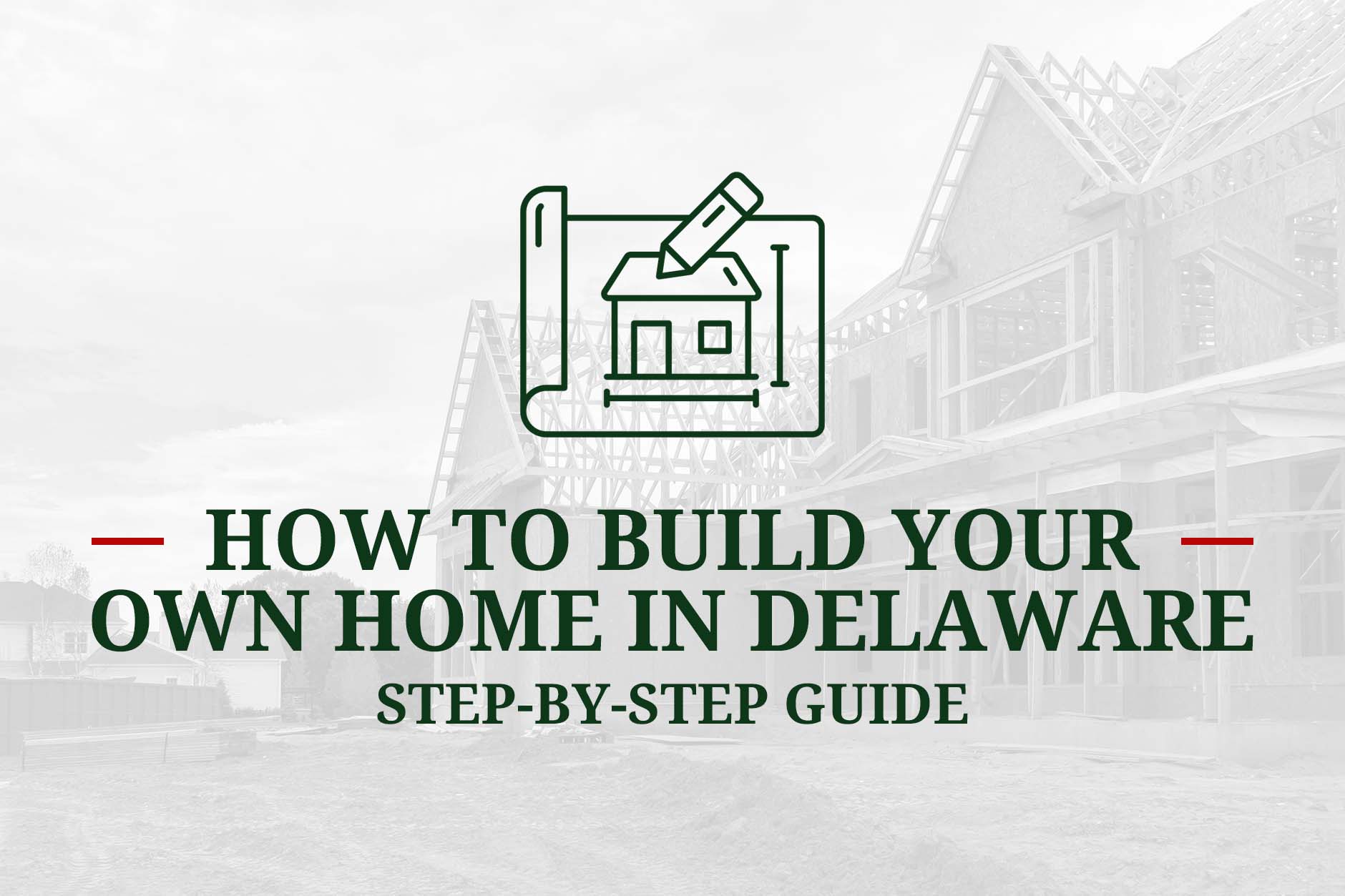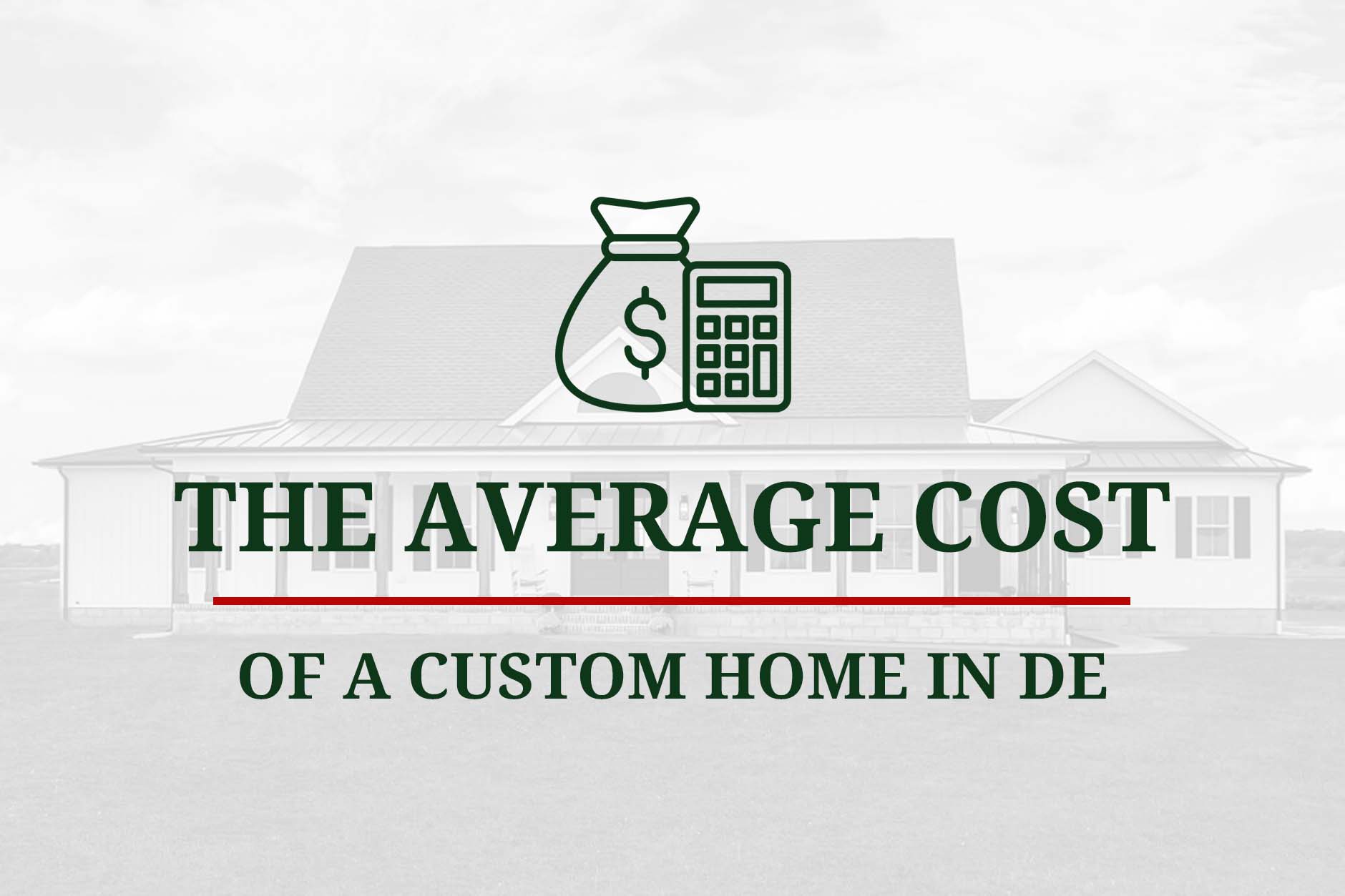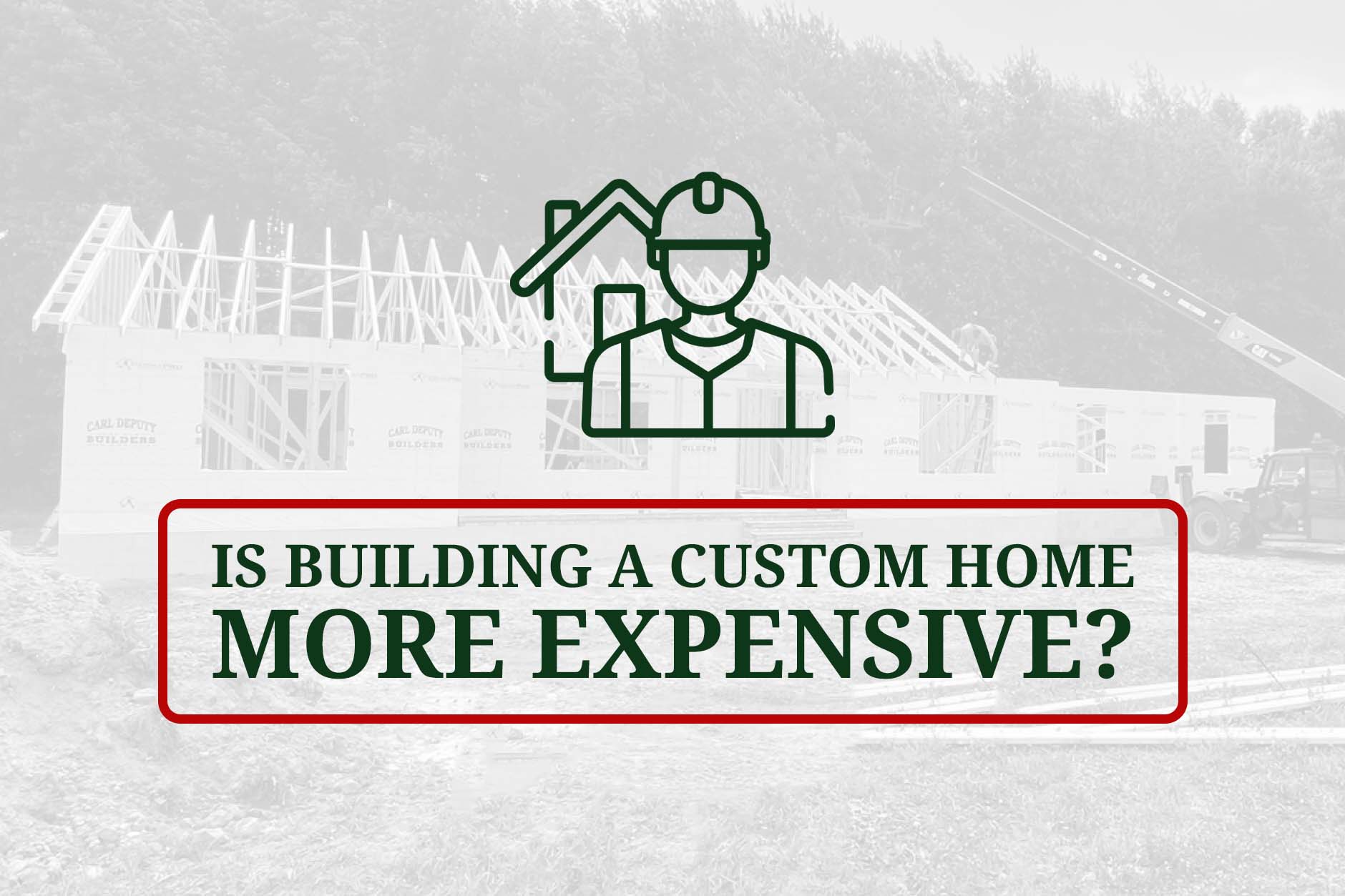
If you want to build your own house, you will first need a piece of property. Buying land is an oft-overlooked part of the process. While it may not be as exciting as picking out fixtures and designing the layout of your home, it is crucial to spend time learning as much as you can about the land so that you make an informed decision about buying it.
There are multiple steps involved in purchasing land on which to build a home. You’ll need to set a budget, figure out financing, and do a lot of research before making an offer. Not every plot of land is suitable for building – which is why it is important to work with trusted advisors and professionals to understand exactly what you are getting when it comes to a piece of property.
Carl Deputy and Son Builders offers both new and custom homes in Kent County, Sussex County, and the Eastern Shore of Maryland. We have significant experience and skill in not only building homes but also assessing a property’s suitability for building. Our team can build a home on your property – or can sell you an approved homesite for your build. Reach out today to talk to a Delaware custom home builder about buying land and building a house.
Have questions about building a home or making home renovations? Sometimes talking directly to an expert is easier than reading a post. Speak with a builder at Carl Deputy & Son Builders > (302) 284-3041
Step One: Consider What You Can Afford and Research Financing Options
Before starting a search for undeveloped land, you should have a good understanding of your finances and what your budget will be. There are a lot of expenses that are associated with buying land and building a house that simply aren’t there when you purchase an existing home – such as permitting fees and the costs of installing a septic system or well (or tapping into the local systems). You will also have to account for standard costs like closing fees, homeowner’s insurance, and property taxes.
A thorough analysis of your finances is necessary when purchasing land. Because banks consider land to be a riskier investment than a house, getting a loan can be both harder and more expensive. If you can do so, paying out of pocket for the land is usually a good option.
If you need to finance the purchase, you will need to obtain what is known as a land loan – which is different from a mortgage. The type of loan available will be based in part on the land that you’re purchasing:
- Raw land is untouched, without roads, electricity, water, or sewage. Loans for raw land usually require a larger down payment and come with higher interest rates.
- Unimproved land may have some basic things like road access but lacks critical features like gas or electric lines. Land loans for this type of property are less risky to lenders than for raw land, but will probably still require a hefty down payment and carry higher interest rates.
- Improved land is basically ready for building, with access to roads and basic utilities. Typically, loans for improved land have better interest rates and lower minimum down payment requirements.
There are many types of loans that you may qualify for based on your circumstances. For example, if you are purchasing land in a rural area, then you may be eligible for a loan through the United States Department of Agriculture (USDA). Many buyers obtain a traditional land loan through a bank or credit union, or may even take out a home equity loan on a house that they already own.
Step Two: Look for a Realtor or Builder with Experience in Land Sales
Once you have financing sorted out and know your budget, you can proceed to the next step: finding a realtor or a custom home builder to help you find land. This is a process that shouldn’t be done on your own, as there are things that must be considered that most people simply aren’t familiar with – unless they’re in the industry themselves.
The average person may not be aware of the intricacies of building a house on a piece of land. A real estate agent or a builder can not only help you find property but can help you figure out if a certain plot is suitable for building. They can also give you an idea of how much it will cost to build a house there given the unique features of the land.
For example, you may fall in love with a piece of land that is heavily wooded. While trees make for a beautiful environment for a home, they are also expensive to remove for building. A builder can talk you through things like how much removing extra dirt and taking down trees will cost.
Step Three: Search for Land
Now that you have figured out a budget and have someone to assist you, it’s time to start searching for land. You should have general parameters in mind. Think about things like:
- How big you want your yard/plot to be;
- Whether you want to have neighbors, and if so, how close you want to be to them;
- The availability of internet and cell phone service; and
- Distance to stores, restaurants, and other amenities.
Land listings can often be found online through real estate websites. The site should allow you to filter for land sales. You can then look for specific characteristics, such as the number of acres and the price per agent. Most listings will also include information about zoning, school district, terrain, and the availability of utilities.
Many people choose to work with a land planner, whose job it is to determine whether it is possible to build on a particular piece of land. A land planner will evaluate every aspect of the land, including soil type, water table, vegetation, and the slope of the land, to determine if your proposed build will be possible.
Alternatively, you can choose to purchase land directly from a builder. Many have available homesites that have already been assessed for suitability for building. They often have many options, from more rural countryside acreage to urban plots to land within developments.
Step Four: Do Your Research
Once you have found a piece of property that you like, you will need to do some homework. You should spend some time researching on:
- Zoning and land use restrictions, including setbacks that specify how close to the property line you can build;
- Any construction plans nearby – such as a large shopping center being built near what you hoped to be a tranquil retreat;
- Property taxes;
- Road access;
- The availability of utilities, including internet and cell phone options;
- The viability of a septic system;
- Any deed restrictions for homes built within a homeowner’s association (HOA) community;
- Flood zones; and
- The suitability of the soil for building.
You will likely have to hire an expert to help with several of these factors, including a land surveyor who can create a survey showing property lines and easements.
This information is all necessary to make a smart decision about whether or not to buy a plot of land. After all, you wouldn’t want to invest a significant amount of money on a piece of property only to find out that you can’t build your dream house on it. If you buy a homesite from a builder, they may have already performed this research for you.
Step Five: Make an Offer
Once you have made a final decision about the land you want to buy – and know how you will likely finance it – then it is time to make an offer. A real estate agent or an attorney can help you draft an offer.
Any offer for the purchase of a piece of land should include contingencies. A contingency is essentially a clause in the contract that provides that certain criteria must be met before the deal is completed. For example, if you’re buying an existing house, you may include a contingency that the house must pass inspection and you must be able to obtain a mortgage. If the contingencies aren’t met, then the deal is off.
For a land purchase, typical contingencies include the ability to obtain financing and the buildability of the land. Essentially, you want to include contingencies that will ensure that you are able to use the land the way that you intend.
Step Six: Apply for a Loan
As described above, land loans are different from mortgages because banks consider them to be a less certain investment. Before you get started on the land-buying process, you should have thought about how you’ll pay for it. If you can pay cash for a piece of land, that is fantastic.
Otherwise, you may need to take out a loan to cover the purchase price. There are several different types of loans available. After you have made an offer on a property, you can apply for your preferred loan. The lender will thoroughly evaluate your finances and the land itself before deciding whether or not to issue a loan.
If your land loan is approved, congratulations! You are one step closer to owning property and building your dream house.
Step Seven: Set a Closing Date
Just as when you purchase a house, there will be a closing date for purchasing land. Closing involves a lot of legal formalities to officially transfer the title from the owner to the buyer. You will sign lots of paperwork, and at the very end, you will be the proud owner of a new plot of land.
Ready to Buy Land for a New House? Reach Out to Carl Deputy and Sons Builders.
Building a new home is the best way to get exactly the house that you want. Before you start planning your dream house, you will first need to buy a plot of land. Whether you purchase a homesite directly from us or have your own land, Carl Deputy and Son Builders can work with you to build an incredible custom home with the highest levels of craftsmanship.
For more than four decades, Carl Deputy and Sons Builders has helped people in Kent and Sussex Counties in Delaware and the Eastern Shore of Maryland achieve their goals as homeowners. In addition to building custom homes, we perform high-quality renovations and have a number of new homes available for purchase. We pride ourselves on only using the highest quality materials and hiring the most skilled tradespeople.
If you are thinking about buying land to build a home in Delaware, we can help. To learn more or to schedule a consultation with a member of our team, give us a call at 302-284-3041 or fill out our online contact form.








